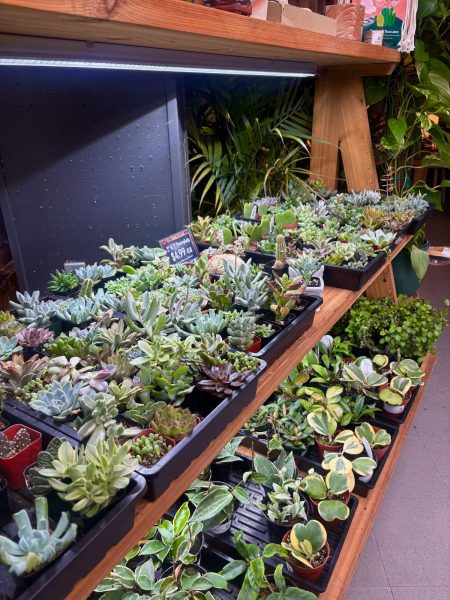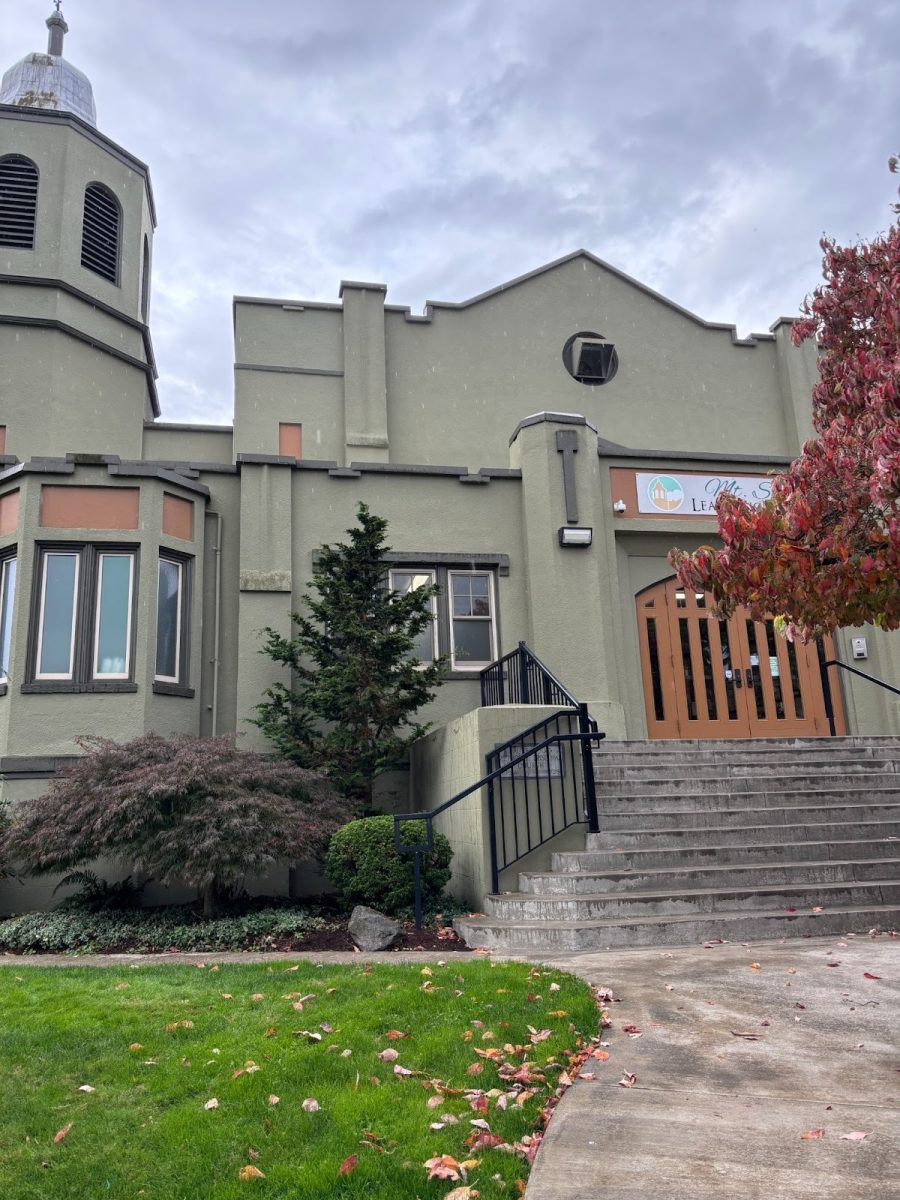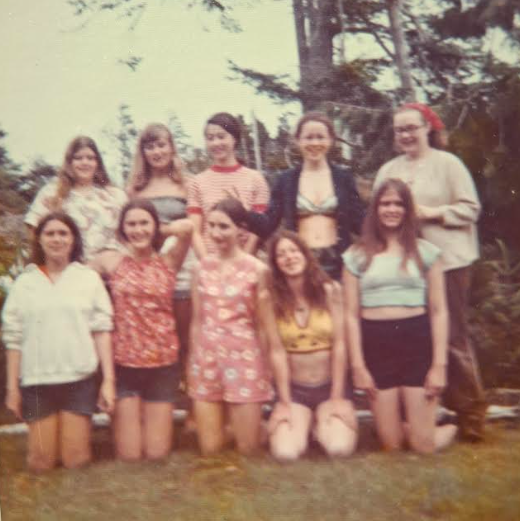
If you find yourself struggling to keep your houseplants alive and thriving, you’re not alone — many face the same challenge. It’s tempting to blindly choose the prettiest plant in the nursery, with no knowledge of how to properly care for it. However, everyone deserves a chance to brighten up their space with healthy and vibrant foliage. So, if you have a brown thumb, these plants and tips might be perfect for you.
Zamioculcas Zamiifolia
Native to Eastern Africa, this desert plant can tolerate any light level. If anything, Zamioculcas Zamiifolia (ZZ) plants are not suited for intense, direct sun. The key to success is only watering it once a month, allowing the soil to dry between waterings. “The most common mistake people make when caring for plants is overwatering. For most houseplants, the roots need to fully dry out before receiving water again,” says Paige Miller-Hughes, who works at Plants on Broadway. “When plants are watered while their roots are still wet, it can lead to root rot, which kills the plant from the bottom up,” she warns. The only drawback is that ZZ plants can irritate cats and dogs, so be careful if you live with any four-legged friends.
Fittonia
You might also want to consider a plant that tells you when it needs water, such as a Fittonia. “Fittonias flop over and look dead when they are thirsty — I lovingly call them our ‘thirsty drama queens,’” Miller-Hughes says. These plants prefer bright and indirect sun, such as north-facing windows. However, if your space doesn’t get much sunlight at all, grow lights might be just what you need, as they are specifically designed to substitute natural sunlight.
There are many Fittonia varieties as well. Miller-Hughes loves the Fittonia ‘Skeleton’ variation, characterized by their intricate leaf venation and deep green leaves that contrast with bright pink veins.
Snake Plant
Like the ZZ plant, snake plants are easy to care for and tend to be more affordable than many other houseplants. They thrive in low-light spaces and don’t need much water. As with the ZZ plant, it’s best to let the soil dry between waterings. If you’re looking for a low-maintenance plant, the snake plant might be perfect for you. Each variation is distinguished by striking, sturdy leaves, so you’re sure to find one that best fits your space.
Fern
If you are a little bit more attentive to your plants, Daphne Peters, the owner of Daphne’s Botanicals, recommends getting a plant that is more comfortable being overwatered, such as a fern. Ferns love humidity, lots of water and space, and sufficient light without direct sun exposure.
Succulents and Cacti
Succulents and cacti are what most people tend to go for when they want an easy to care for plant because they don’t need a lot of water, don’t take up a lot of space, and are easy to find. However, succulents, especially cacti, need a lot of light. If you are able to provide enough sunlight for your cacti and succulents, then they might be the perfect plants for you. Like the ZZ and snake plant, it’s best to let the soil dry out completely before giving your cacti and succulents more water. The best part is, succulents and cacti come in all different shapes and sizes, which means that you will have no problem finding one that perfectly fits your space.
Peace Lily
Ann Patterson, Portland Nursery’s houseplant buyer, recommends peace lilies. Characterized by dark green, glossy leaves and delicate white flowers, these plants love water and don’t require a lot of sunlight. “If you don’t water your peace lily enough, it’ll droop. When you water it, it’ll perk right back up,” Patterson says.
What’s interesting about peace lilies is that they have air-purifying abilities, and have been proven to fight pollutants such as benzene, formaldehyde, and trichloroethylene, according to a NASA study.
Expert Tips
While overwatering and underwatering are the most common mistakes, they aren’t the only ones. “I have learned that many people don’t know the importance of soil changes,” says Miller-Hughes. She recommends soil changes every few years. Over time, plants deplete the nutrients in the soil, causing it to become compacted and unable to hold moisture effectively, which can hinder growth. “Additionally, a lot of folks don’t know the importance of fertilizing! All plants, with the exception of carnivorous plants, need consistent fertilizing. If you’re just getting started, all you need is the plant in the right soil and [the right] fertilizer,” she adds.
Low humidity is another common, yet overlooked issue. While plants can adapt to indoor humidity, they do even better when there is more moisture in the air. To increase humidity, you can either use a humidifier or simply place a dish of water near your plants and let it evaporate. In humid environments, plants grow stronger and faster, and are better able to repel pests. “The key is to clean [your humidifiers] because they can get moldy. I tell people, if they’re going to invest in a humidifier, they have to have the patience to clean them every so often. The other thing is, the more plants you have, the more natural humidity the air will have — they support each other,” says Peters.
It’s also incredibly important to clean the leaves of your plants. Dust attracts pests, which are a pain to get rid of.
When it comes to repotting, Peters shares some valuable advice. “In my opinion, people are overzealous when it comes to repotting their plants, and they want to repot their plants right away. To me, it’s better to take the plant home and let it adapt to its new environment and see how it does. I usually leave repotting until the springtime, or when the plant starts to do bad,” she says. Another tip is to choose a pot that has a drainage hole to prevent your plant’s roots from rotting.
Plants need food too, just like humans do. The types and amounts of food your plants need vary by species and season. Generally, plant food provides essential nutrients, like nitrogen, phosphorus, and potassium.
The most important thing, however, is research. It’s extremely helpful to research the plants you’re getting so that you know how to properly take care of them. “You need to know what kind of weather conditions or environment they like so that you can kind of try to replicate it at home. To me, that’s more important than all the tools out there,” says Peters.
The next question is: where can you find the perfect plant?
Plants on Broadway
Plants on Broadway is a sister store with Pets on Broadway across the street. “We cater to three types of plant shoppers: those who are new to the hobby, passionate collectors, and those who are setting up bioactive enclosures for pets!” says Miller-Hughes. “We always stock a wide variety of plants for both tropical and arid bioactive enclosures. We continue to develop our rare plant section and will have specimens you won’t find in other shops around Portland.” Most importantly, the nursery is home to a giant Madagascar day gecko, Reptar!
Portland Nursery
Portland Nursery is an iconic local establishment catering to all things plant and outdoor related. Open since 1907, they’ve been serving generations of Portland gardeners. Whether you’re looking for a houseplant, or a new fruit tree for your backyard, Portland Nursery has it all, and their staff won’t hesitate to help you find and care for the perfect plant.
Daphne’s Botanicals
Daphne’s Botanicals is a plant nursery in Portland’s Woodstock neighborhood. “We’re attached to a Filipino bakery, so I encourage people to come in, shop for plants, and try some Filipino treats,” Peters says. Her shop offers a gadget called the PlantDoc: a biodegradable, color-changing, moisture meter for plants that reflects soil wetness by absorbing moisture and changing color from white to green and back to white when dry.
If you’re a Franklin student, enjoy a 10% discount at Daphne’s Botanicals, courtesy of Peters. “We love the southeast community and we welcome all students,” she says. “Portland in general is really supportive of the house plant culture. There’s so much of it here.”
Even if you have the worst luck when it comes to taking care of plants, the people at Daphne’s Botanicals are here to help. With the right plant, you might find yourself hooked on gardening.


































